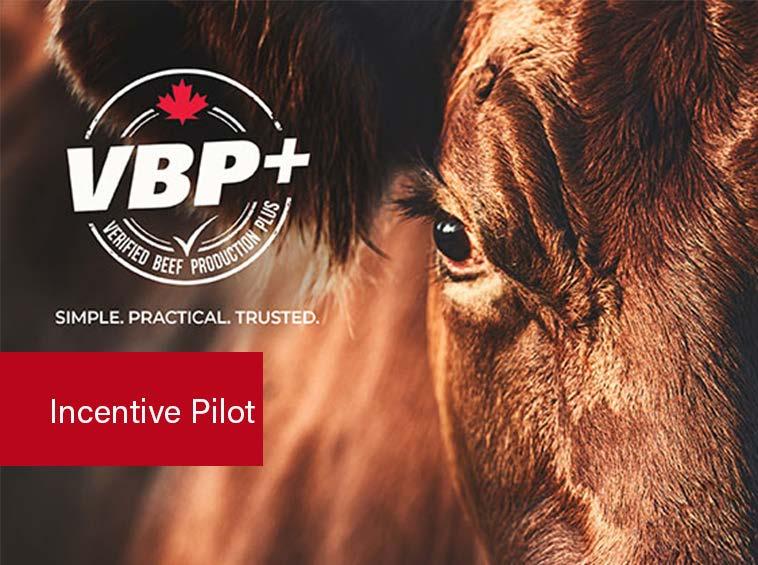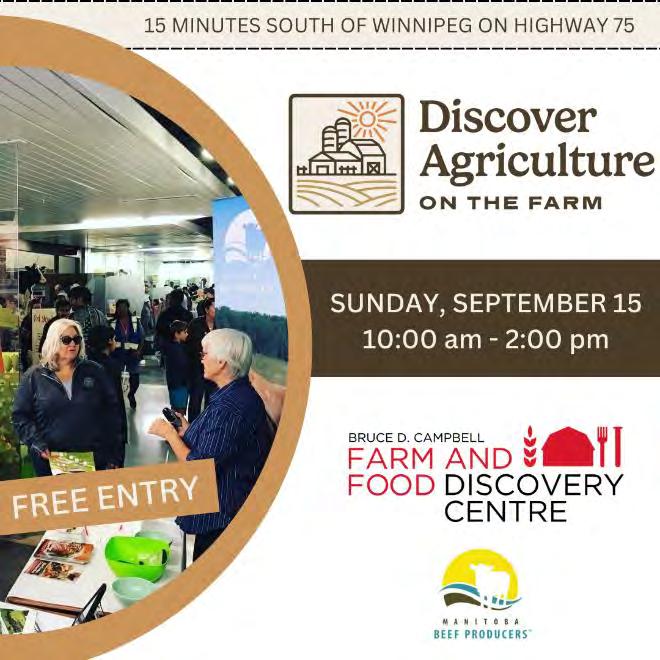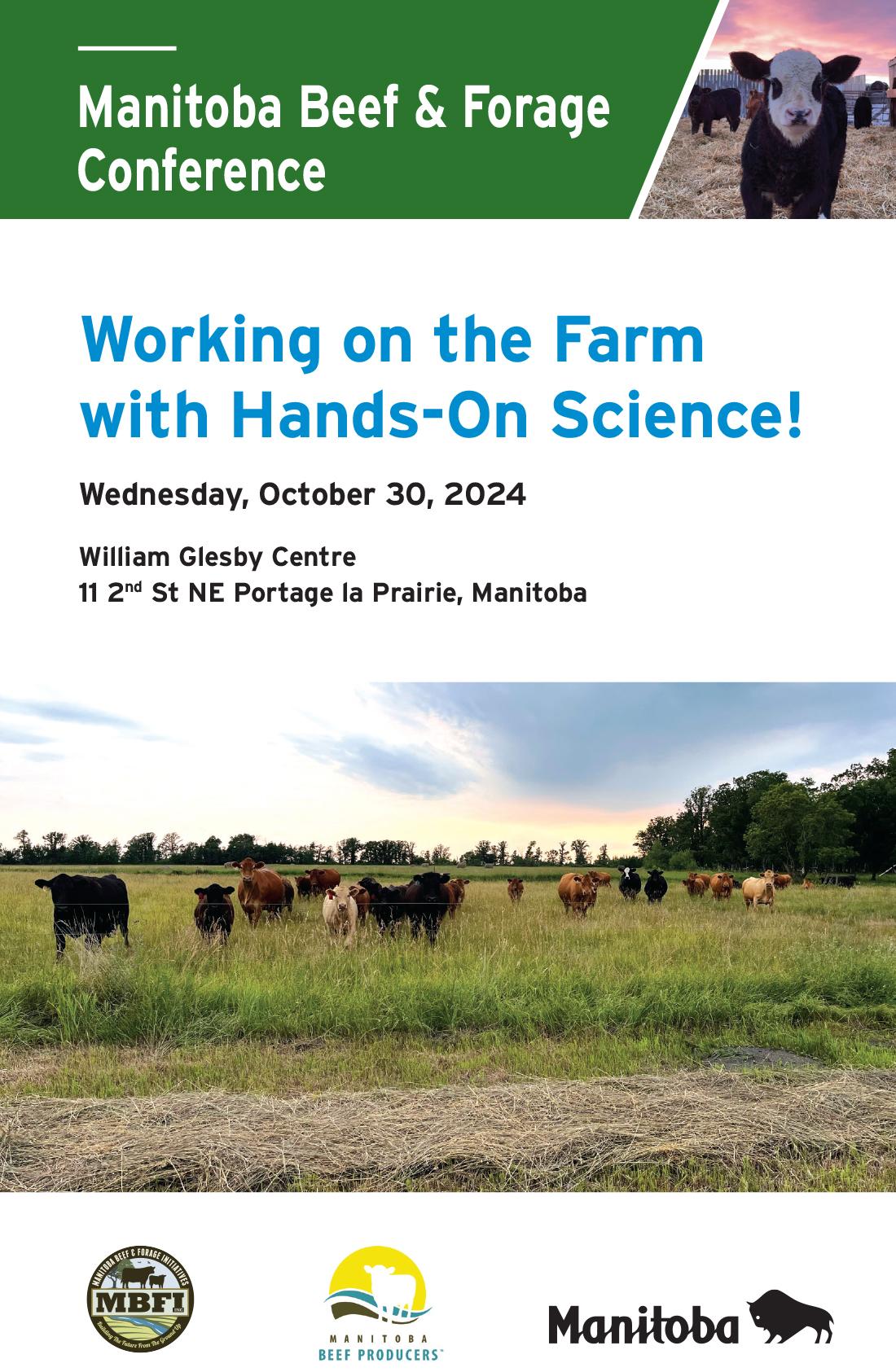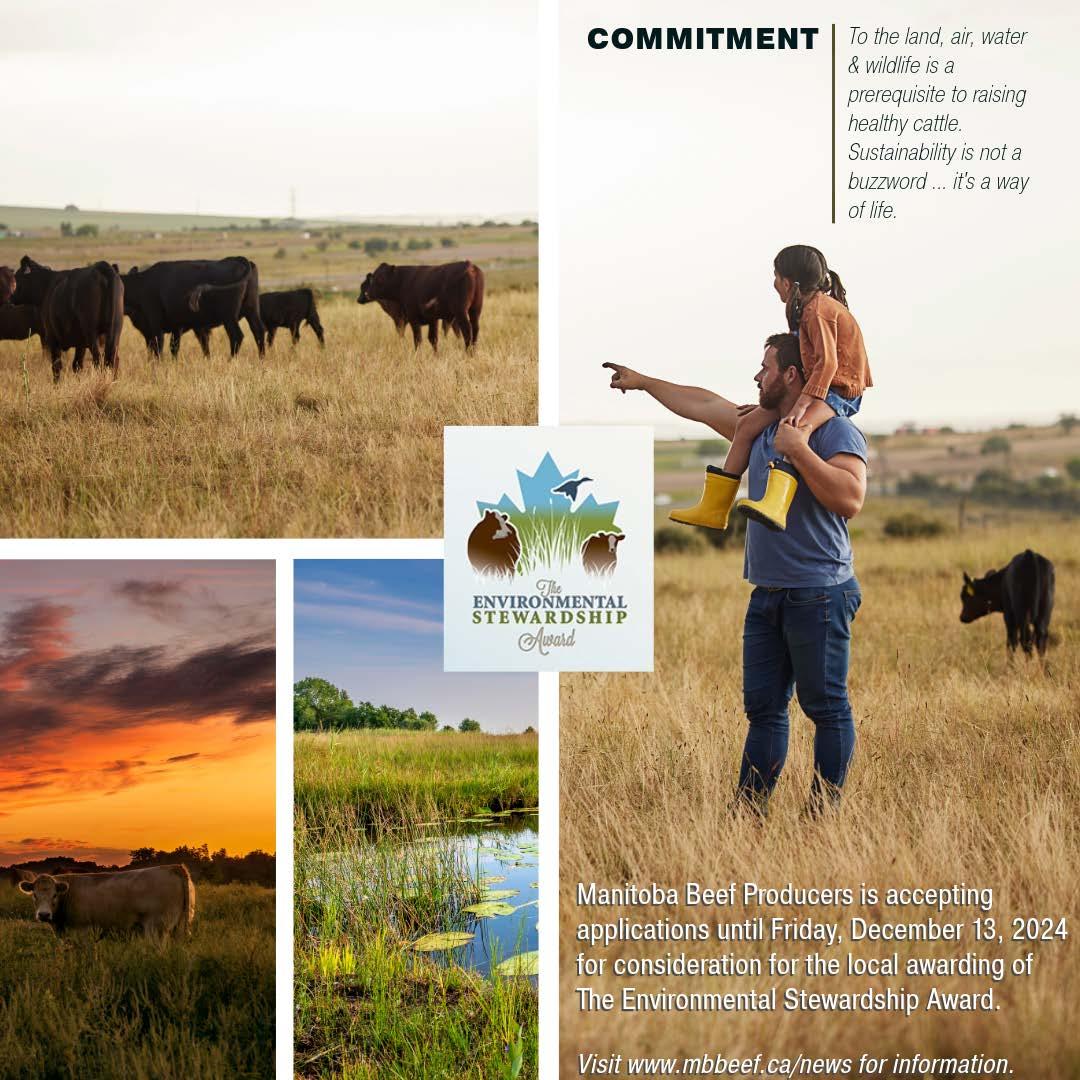
















(September 3, 2024 Province of Manitoba News Release) The Manitoba government has named Dr. Glen Duizer as its new chief veterinary officer, leading the province’s animal health, disease prevention and response programming, Agriculture Minister Ron Kostyshyn announced.
“The chief veterinary officer is a leader in connecting the strength of Manitoba’s agricultural and agri-processing sectors with animal and human health,” said Kostyshyn. “Dr. Duizer’s extensive experience and expertise in animal health, emergency planning and response and epidemiology and his strong relationships with livestock and poultry stakeholders and veterinarians will help guide our work protecting animal and human health, and we are excited to welcome him to this role.”
Dr. Duizer graduated as a doctor of veterinary medicine from the University of Prince Edward Island in 1995 and obtained a master of science in epidemiology in 2015. He has been with Manitoba Agriculture since 2005 and has 10 years prior experience as a clinical veterinarian in food animal and mixed animal practices.
Manitoba’s chief veterinarian, chief veterinary office, provincial veterinarian for animal welfare and other stakeholders work together to protect animals, food and people. The chief veterinary office is responsible for:
• leading disease planning, prevention, surveillance and response activities,
• supporting biosecurity efforts,
• collaborating in veterinary public health issues,
• overseeing Manitoba’s veterinary diagnostic services laboratory,
• maintaining traceability and premises identification systems, and
• connecting farmers, processors and others with information and resources on these issues.
For more information about the work of Manitoba’s chief veterinary office, visit: www.gov.mb.ca/agriculture/animal-health-andwelfare/index.html
Livestock Predation Prevention:
• Funding Purpose: Purchase of preapproved equipment and guardian dogs
• Application Deadline: Dec. 20, 2024
• Application Information: Livestock Predation Prevention
Food Safety and Traceability:
• Application Deadline: Jan. 23, 2025
• Application Information: Food Safety and Traceability
Explore Sustainable CAP priority areas and programs at manitoba.ca/sustainablecap/, check out our YouTube playlist, or call 1800-811-4411. Stay tuned for updates!
• Funding Purpose: Equipment for monitoring and controlling food safety parameters, and improving traceability systems
(September 4, 2024 Province of Manitoba News Release) The Manitoba government is retaining skilled labour by supporting the extensions of work permits for temporary residents who are eligible to apply to the Manitoba Provincial Nominee Program (MPNP), Labour and Immigration Minister Malaya Marcelino announced.
“At a time when skilled labour is in high demand, our government is making sure that people who are already in the province, who have contributed economically and who have expressed a desire to call Manitoba home are given that opportunity,” said Marcelino. “Our government’s agreement with our federal counterparts facilitates a pathway to citizenship and will help address labour market needs in Manitoba.”
On Aug. 21, the province signed a letter of intent with the federal government that will allow for eligible candidates identified under the province’s provincial nominee program to apply to extend their work permits.
This means up to 6,700 temporary workers identified by Manitoba will be able to continue working in the province while their applications to the MPNP are processed, noted the minister. Within two years, it is expected the individuals will be eligible to receive a nomination from the provincial nominee program, said Marcelino.
To support and facilitate the timely processing of applications under the provincial nominee program, including fulfilling the operational and reporting requirements of applicants under the new public policy, the government is adding five temporary full-time equivalent positions. The positions will support the program throughout the 2024-25 fiscal year to:

• expedite the processing of applications for individuals whose status in Canada is expiring, and
• ensure the full utilization of the 2024 allocation of 9,500 nominees as quickly as possible.
For more information about the temporary extension policy including eligibility criteria and MPNP, visit https://immigratemanitoba.com/

Discover Agriculture on the Farm, a hands-on event celebrating where our food comes from, will bring together urban and rural Manitobans on Sunday, September 15 to kick off the province’s Farm and Food Awareness Week.
Free and open to the public, the event will run from 10 am to 2 pm at the Bruce D. Campbell Farm and Food Discovery Centre, located 15 minutes south of Winnipeg.
This free event offers interactive family fun and an opportunity to talk with Manitoba farmers, see live animals including pigs, dairy cows, broilers and laying hens, and explore prairies crops like canola. The event will include handson activities and games. Participating
organizations will be sharing recipes and other giveaways. There will be food samples while supplies last.
The event provides the opportunity to learn more about the great diversity of food production in this province and the importance of agriculture to the provincial economy.
The Bruce D. Campbell Farm and Food Discovery Centre is located at the University of Manitoba's Glenlea Research Station, 1290 Research Station Road, Glenlea, MB.
Participating organizations include:
• Agriculture and Agri-Food Canada
• Bruce D. Campbell Farm and Food Discovery Centre
• Keystone Agricultural Producers
• Manitoba Agriculture
• Manitoba Beef Producers
• Manitoba Canola Growers Association
• Manitoba Chicken
• Manitoba Egg Farmers
• Manitoba Pork
• Prairie Fruit Growers Association


August 30, 2024
The Canadian Cattle Association (CCA) is pleased to see the Government continue to move forward on their commitment from Budget 2023 with today’s announcement outlining next steps towards establishing the Canadian Foot and Mouth Disease (FMD) Vaccine Bank.
“We hope to never need to use it, but having a vaccine bank in place is critical to protect Canada’s beef producers. If FMD occurred in Canada, having a vaccine would minimize spread and expedite a return to normal trade. Today’s news is positive on the progress on preparedness and is the first step of many to follow.” – Nathan Phinney, CCA President
The Canadian Food Inspection Agency (CFIA) request for proposal was issued by Public Services and Procurement Canada on behalf of the CFIA to provide FMD vaccine doses. CCA continues to advocate to the Government of Canada along with other stakeholders to ensure the FMD vaccine bank is fully established as soon as possible. The FMD vaccine bank is an essential component to Canada’s preparedness and response plans.
FULL GOVERNMENT OF CANADA NEWS RELEASE https://www.canada.ca/en/foodinspection-agency/news/2024/08/government-of-canada-announces-requests-for-proposal-forthe-foot-and-mouth-disease-vaccine-bank.html
For further information, contact: Carol Reynolds
Communications Manager Canadian Cattle Association 403-451-0931| reynoldsc@cattle.ca
The Canadian Cattle Association is the national voice for Canada’s beef cattle industry representing 60,000 beef farms and feedlots. www.cattle.ca
(August 30, 2024 – Canadian Food Inspection Agency News Release) The Government of Canada is continuing to advance its work of protecting animal health by establishing a foot and mouth disease (FMD) vaccine bank. The vaccine bank is a key part of Canada's response plans to control and ultimately eliminate an outbreak of FMD should it be detected in Canadian animals.
Today, a Request for Proposal (RFP) was issued by Public Services and Procurement Canada, on behalf of the Canadian Food Inspection Agency (CFIA), to supply vaccine products to the FMD vaccine bank.
The successful bidder(s) would provide concentrated FMD vaccines that could be rapidly transformed into usable vaccines. Information about the RFP including requirements, criteria, processes and timelines is available to interested bidders on CanadaBuys.
The vaccine bank will help protect Canada from the emerging threat of this disease, maintain public confidence in the Canadian food supply, and help reduce the spread of the disease, should an outbreak occur. An effective and efficient response, including vaccination, will also help mitigate prolonged market disruptions to trade.
"It's vitally important that we continue to take steps to protect livestock, and the livelihood of our hardworking farmers, against the threat of animal disease. By creating a dedicated foot and mouth disease vaccine bank, we're working to reduce the spread of the disease and the impact
that a potential outbreak would have on market access for Canadian producers. Today's announcement marks another step forward in the on-going work of supporting our animal disease preparedness efforts."
– The Honourable Lawrence MacAulay, Minister of Agriculture and Agri-Food
Quick facts
• Budget 2023 committed $57.5 million over five years, with $5.6 million ongoing, to the CFIA to establish an FMD vaccine bank for Canada, and to develop FMD response plans.
• The economic impacts in Canada are estimated to between $20.9B and $65.2B depending on the mode of introduction and extent of spread.
• FMD is a severe, highly communicable viral disease of cattle and swine. It also affects sheep, goats, deer and other cloven-hoofed ruminants but not horses. Many affected animals recover, but the disease leaves them weakened and debilitated.
• Canada has been free from FMD since 1952, and strict measures are in place to prevent the disease from entering Canada. FMD is not a public health risk and is not considered a food safety issue.
• The CFIA would use a vaccine only in the event of an outbreak to protect animals and help stop the spread of disease. This complements Canada's current access to vaccines through the North American Foot and Mouth Disease Vaccine Bank (NAFMDVB) ensuring readily available vaccines for Canadian producers.
• In Canada, FMD is a reportable disease under the Health of Animals Act, and all suspect cases must be reported to the CFIA.
• The CFIA monitors the status of FMD worldwide and has emergency preparedness and response plans ready.
Help Inform Government of Weather Conditions Affecting Your Farm/Ranch
Agriculture and Agri-Food Canada is still collecting reports for the August Agroclimate Impact Reporter. If you have already completed the survey, thank you! We’re not just interested in hearing about extraordinary conditions; we’re also interested in hearing if conditions are normal for the time of year.
Your response will help accurately represent the impacts of weather in your region. The data collected from this survey will help inform recommendations for Livestock Tax Deferral, the Canadian Drought Monitor, and updates to the Minister of Agriculture.
English French
To view previous Agroclimate Impact maps, follow this link. Or see some of the other resources we produce on the AAFC Weather and Drought home page.
The surveys are completely anonymously and the information you share cannot be tied to you or your email address. This information is extremely valuable and provides confirmation and details that are required to assist with various programs and activities of AAFC, including the Canadian Drought Monitor, Livestock Tax Deferral and AgriRecovery.
For more information about AIR and how to enrol to complete the surveys go to www.agr.gc.ca/air .
Thank you for your participation!

You’re invited to a farm tour and potluck at Bar VI Ranch near Langruth, Manitoba!
Bar VI Ranch is a host farm in the Young Agrarians Apprenticeship Program that runs a holistically managed grass-fed cow/calf operation with a focus on soil health. Operated by Kris and Clorissa Egilson, they are the fourth generation to manage this 1600-acre ranch and bring a passion for regenerative agriculture and
direct marketing quality products to their community.
At this event, they will talk about their Land to Market Certification, the Holistic Management practices they implement, the Ecological Outcome Verification (EOV) program they are participating in, and the Canadian Meat Board that Kris founded.
Join us for an afternoon of learning and stay for a potluck meal.
WHEN: Saturday, September 28, 2024 | 3-8pm
Location: Treaty 1 Territory. Langruth, Manitoba
Registration is free! Grab your spot here: https://youngagrarians.org/sept-28-2024langruth-mb-farm-tour-and-potluck-at-bar-viranch/
(Agriculture and Agri-Food Canada News Release)
All Canadians, particularly young Canadians, deserve to have access to nutritious food. We know that when kids eat well, they are set up for success. Communities in every region of our country have their own unique challenges when it comes to food security, and the federal government is taking action to address them.
Today, the Honourable Lawrence MacAulay, Minister of Agriculture and Agri-Food, announced the launch of the new School Food Infrastructure Fund (SFIF) and the next phase of the Local Food Infrastructure Fund (LFIF). As part of the $62.9-million announcement in Budget 2024, Agriculture and Agri-Food Canada will deliver these two programs aimed at supporting community-based not-for-profit organizations working to improve local food security for Canadians of all ages.
The new School Food Infrastructure Fund (SFIF) will help not-for-profit organizations invest in infrastructure and equipment to support school food programming across Canada. The $20.2-million SFIF is delivered as a complement to both the National School Food Program, and the guidance provided under the National School Food Policy. Eligible organizations are encouraged to apply from noon EST today until October 4, 2024.
The renewed Local Food Infrastructure Fund (LFIF) will continue to help improve community food security and will be delivered through two components:
• Small Scale Projects will provide funding between $25,000 and $100,000 to support infrastructure projects, such
as irrigation systems for community gardens or solar panels for greenhouses. Applications for the first intake will be open from October 1 to October 31, 2024. A second intake will be announced in 2025.
• Large Scale Projects will provide funding between $150,000 and $500,000 in support of community food security for projects with multiple infrastructure and equipment needs. For example, partners could come together to upgrade a soup kitchen and increase the number of meals served, using food from a local community garden, or a local farmer. Applications will be open from January 13 to February 28, 2025.
This investment will support increased access and availability of local, healthy, and culturallyappropriate foods, with a priority focus on equity-deserving groups within communities.
Quotes
“Since we first launched the Local Food Infrastructure Fund back in 2019, we’ve supported over 1,100 projects right across the country, from community kitchens to greenhouses in Northern communities. Today, we’re expanding the program and launching our new School Food Infrastructure Fund, so more kids have the healthy meals they need to learn, grow, and reach their full potential.”
- The Honourable Lawrence MacAulay, Minister of Agriculture and Agri-Food
“Every parent and teacher knows that a good meal can make all the difference in a child’s day. A child’s ability to succeed and reach their full potential starts with the basics a full belly and a nourished mind. By partnering and working with community organizations, we’re working towards our shared goal – ensuring that children in Canada have access to healthy meals that help them learn, grow and thrive in school and in life.”
- The Honourable Jenna Sudds, Minister of Families, Children and Social Development
Quick facts
• To date, the LFIF has committed $65 million to support over 1,100 projects to improve food security across Canada, such as: community gardens and kitchens; refrigerated trucks and storage units for donated food; greenhouses in remote and Northern communities; and more.
• The renewed LFIF mobilizes $42.7 million to continue to help improve food security through investments in infrastructure needs.
• The SFIF and LFIF complement other ongoing federal efforts to address food security in underrepresented and marginalized populations across Canada.

Source: Statistics Canada’s September 6, 2024 edition of The Daily
Farm Product Price Index (year-over-year change)
The Farm Product Price Index (FPPI) fell 1.3% in June, compared with the same month a year earlier. This was the sixth consecutive year-overyear monthly decline and the smallest decrease since the beginning of 2024. The drop in the crops index was behind the FPPI decrease, as the price index for livestock and animal products rose in June.
Lower prices for major grains and oilseeds lead to decline in the crops index
Year over year, the crops index (-8.2%) continued to decrease in June, marking its 18th consecutive month of decline. The decrease in the crops index was mainly driven by lower prices for major grains and oilseeds.
The grain index fell 14.4% in June, compared with the same month the previous year. The decline was driven by lower prices for barley (24.4%), corn (-22.8%) and wheat (excluding durum) (-14.9%). Meanwhile, higher oat prices (+18.7%) mitigated the year-over-year decline in the grain index in June. The gain was largely the result of low production in 2023.
The oilseeds index also decreased in June 2024 compared with the same month a year earlier, down 12.8%, because of lower prices for soybeans (-16.7%) and canola (13.6%). Canola exports were down 15.9% in the first 11 months of the 2023/2024 crop year, compared with the same period in the previous crop year.
Meanwhile, the fresh potatoes (+9.9%), fresh vegetables (+4.1%) and fresh fruit (+1.9%)
indexes recorded gains, moderating the yearover-year decline in the crops index in June 2024.
Year over year, an increase in the specialty crops index (+2.3%) in June also helped to mitigate the decline in the overall crops index. The gain was primarily attributable to higher prices for dry peas (+12.5%).
Increases in the livestock index supported by strong demand for hogs and cattle
The livestock and animal products price index increased 8.8% in June, compared with the same month a year earlier. This marked the fourth consecutive monthly year-over-year gain.
The cattle and calves price index rose 10.8% in June, compared with June 2023. Cattle prices were supported by a smaller cattle herd and increased exports of live cattle. The value (+42.9%) and the volume (+25.4%) of cattle exported for immediate slaughter were up in the second quarter of 2024, compared with the same quarter in 2023. The gain in the volume of cattle exported was largely driven by an increase in heifers (+21.9%) and steers (+22.4%) exported for immediate slaughter in the second quarter of 2024.
The hogs price index recorded a 15.2% gain in June over June 2023, the fifth consecutive month of year-over-year increases. Month over month, hog prices rose for a sixth time in a row in June 2024. The gains were supported by continued strong demand for pork, which offered a more economical choice compared with other meat options on the market.
The poultry (-5.1%) and eggs (-1.0%) indexes both reported declines, while the dairy index (+5.7%) increased.
September 6, 2024

With government regulations affecting beef production in other countries, it is crucial for Canada to adopt sustainable beef practices to maintain and grow our beef markets. Currently, Canada lacks a national benchmark of practices used by backgrounding and finishing operations, which can lead to uncertainty about current practices.
To address this, the Canadian Benchmark survey was developed to assess the sustainability of the cattle feeding industry and to help producers enhance their operations. This national benchmark serves as a valuable tool for feedlots and backgrounders, allowing them to compare their practices with those of other operations across Canada. By doing so, producers can identify their strengths and weaknesses, providing a clear path for improvement.

REMINDER: The completed TESA application form, along with all supporting documentation (such as letters of support, photos and/or videos), is to be submitted to Manitoba Beef Producers by email to info@mbbeef.ca no later than Friday, December 13, 2024. If you have questions, please contact the MBP office at 204-772-4542.
Additionally, the benchmark survey supports research and extension activities by highlighting what matters most to producers. It also helps identify practices that can enhance the efficiency and sustainability of their operations.
The survey covers various aspects, including management practices, feeding strategies, feed additives, diet composition, types of cattle, and overall cattle management used in each operation. By gathering detailed information, we can create an accurate and effective benchmark that will benefit the cattle feeding industry and support the growth of the Canadian beef sector.
Please support our project and the Canadian beef industry completing the survey: https://ca1se.voxco.com/SE/90/Feedlot/
If you would like to learn more about the survey: https://researchgroups.usask.ca/feedlotbenchmark/